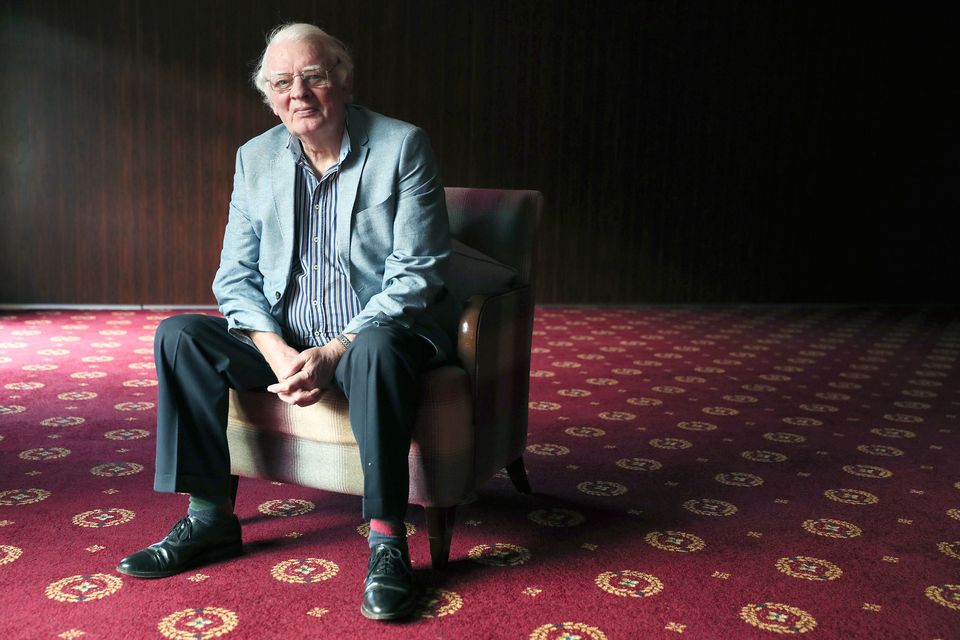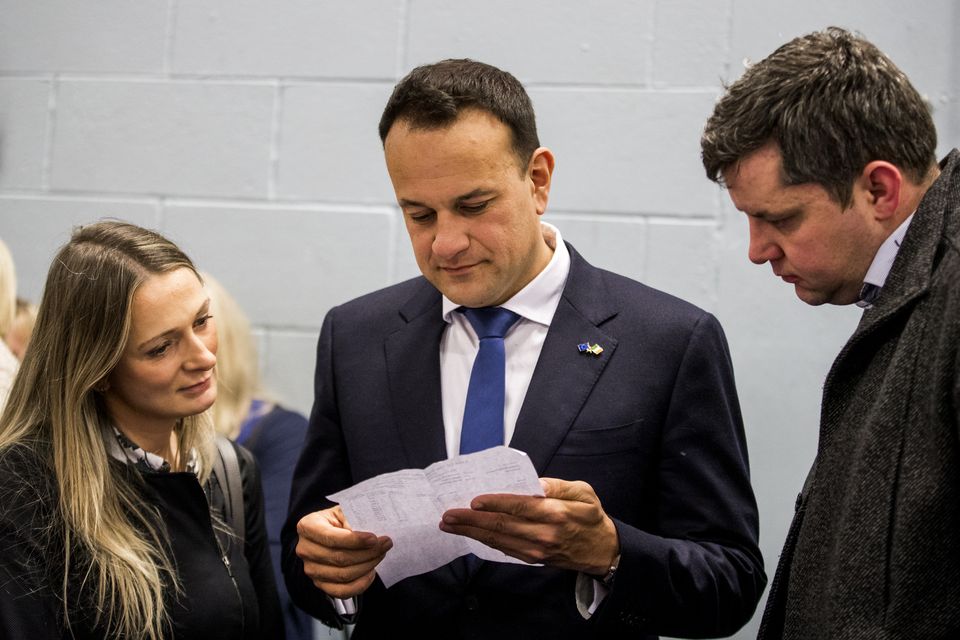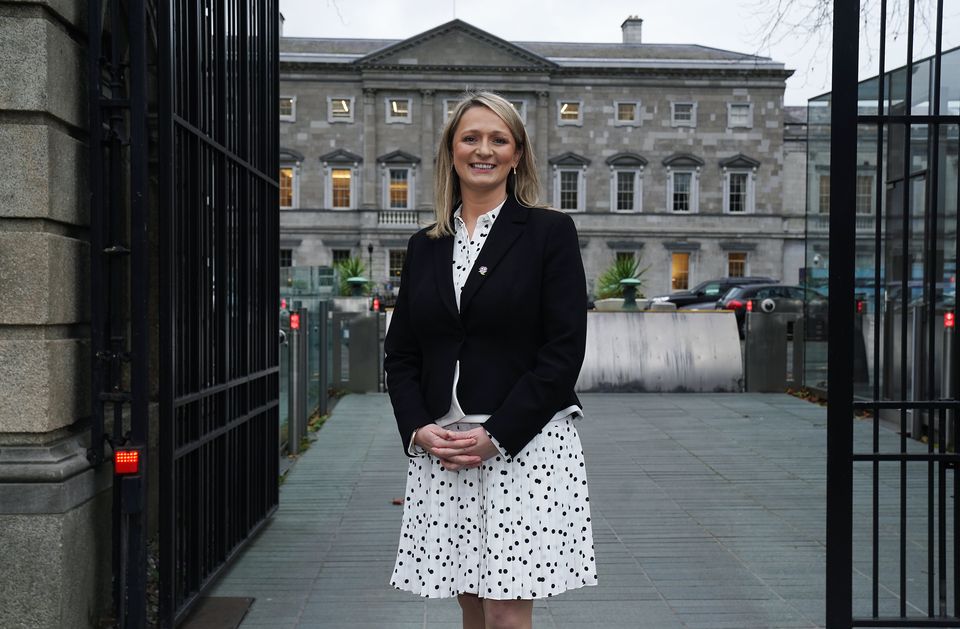Days before the sudden death of Austin Currie, his daughter made a promise to the leading figure in Northern Ireland’s civil rights movement that she would keep the case of the IRA’s disappearance of Columba McVeigh in the public eye.
Some 22 years after the co-founder of the SDLP bowed out of politics, his 45-year-old daughter Emer Currie walked through the doors of Leinster House to take her Dail seat in the Dublin West constituency last week.
Pinned to the left lapel of her blazer was a badge representing the people who were murdered and secretly buried during the Troubles.
Mr McVeigh, from Co Tyrone, disappeared in 1975 at the age of 19. Despite numerous searches for his remains, he has never been found.
Some 17 people were murdered and secretly buried by republican paramilitaries during the Troubles.
Ms Currie, who is married to Malcolm Craig and has two daughters, Cordelia, 12, and Rebecca, 10, was first elected to Fingal County Council in 2019 and unsuccessfully ran in the 2020 general election.
In June 2020, Ms Currie was appointed a senator as a taoiseach’s nominee.
She was elected following the second count in Dublin West earlier this month, the seat held by former party leader Leo Varadkar from 2007 until he stepped away from Irish politics last month.
Ms Currie’s father, who died in 2021, held the same seat from 1989 to 2002.
Despite following in the footsteps of two political heavyweights, Ms Currie says she will carve out her political path and a career that is unique to her.
After growing up outside Dungannon in Co Tyrone, Ms Currie moved to Dublin age 10 when her father was first elected to the Dail.
“The biggest thing I can do for him is a promise that (I gave) – a conversation we had the Friday night before he died, and he didn’t know that he was going to die three days later, and I certainly didn’t,” Ms Currie said.
“We had just finished watching the Late Late Show, and we were having a glass of wine, and I just closed down the laptop, and we were going through what I was working on and how I was getting on, and who my friends were in Leinster House, and how important it is to balance family with politics.
Austin Currie was a former MP, TD and Irish minister (Brian Lawless/PA)
“He asked for an update about the McVeighs and about Columba McVeigh and he said, ‘will you promise me that you’ll always keep that on the agenda?’ And I said that I would.
“That was the last promise I made to him, and I will keep that, and that’s why I wore the pin on Wednesday (for the first sitting of the Dail), and my mum wore the pin as well.”
She added: “It was the most special feeling in the world to be there (Leinster House) with my mum, 35 years later, after him, and knowing all the people that got you there.
“They say it takes a village to rear a child and it takes an army of people to get you through the doors of the Dail chamber. It was a very special day.”
Asked if she feels the pressure of the two political giants on her shoulders, Ms Currie, who is the only Northern Ireland-born TD in the Dail, said she did not.
“You’ve got to follow your own path. And when you get into politics, you’re doing it very much for your own reasons,” she added.
“That was something that was a very deliberate decision on my part, as a daughter of a well-known politician.
“So dad left politics in 2002 and I didn’t get into politics until 2019, and I did it because I wanted to make a change on things like childcare, on making life easier for families, and on access to special education.
“It was very deliberate decision from my perspective, that if I was getting into politics, I was doing it because I wanted to see change, and not because I was picking up where either he or Leo left off.
Emer Currie with Leo Varadkar at Phibblestown Community Centre in Dublin during the results of the 2020 election (Liam McBurney/PA)
“But at the same time, you’re aware, when you walk into that chamber, of the magnitude of the responsibility and the people that have gone before you, and you certainly want to live up to expectations.
“But in terms of motivations, no they’re definitely my own motivations, and I think that’s even something that my dad could see in me, and probably why he was at peace with me going into politics in the first place.
“There isn’t a day that goes by where I don’t draw on both the experience and the values of my dad in politics.
“I didn’t realise just how much that would impact my prioritisation and how I go about it. So I’m in it for my own reasons, but also surprised myself as to how his contribution impacts me every day, and not just him, my mum.”
She identifies childcare and helping local businesses among her priority areas.
“For me, it’s very much about the people of Dublin West and delivering on those promises and those discussions on the doorsteps and the people I’ve met over the last six years,” she said.
On childcare, she says: “We’re on the cusp of seeing transformative change I hope, in the programme for government, and I want to push that through.
“I’ve done the groundwork in bringing ideas forward to (fine Gael leader) Simon Harris on the blockages and the opportunities and ensuring that there is childcare, affordable childcare, and accessible childcare in people’s communities. I want to see that over the line.”
She also wants to see an improvement in the north-south relationship.
“I’m northern born but I’m a product of my upbringing in both north and south,” she adds.
“What I see is a relationship that needs to be built on. There is still a disconnect north and south, and we have to always prioritise that relationship.
“There’s so much untapped potential, with the north-south relationship and I don’t think that the north-south relationship is as relevant as it should be to the next generation.”
Emer Currie said she wants to see an improvement in the north-south relationship (Brian Lawless/PA)
Despite growing up in a house that was attacked more than 30 times by loyalist and republican paramilitaries, Ms Currie has memories of living in a home that felt safe.
“We had bulletproof windows. We had a bulletproof door. There was a phone beside daddy’s bed that went straight to the police station, and there was an alarm system that would frequently go off.
“Someone tried to put sledgehammers through the bulletproof windows when I was asleep.
“That’s what I grew up with, but my home as a child always felt safe, and my parents always created a place where home was a sanctuary.
“I have memories of it, and to me that was just the way I grew up and, in fact, how I feel is that we were the lucky ones because I could have lost my dad when I was young and I didn’t, and I still have my four brothers and sisters.
“We were the lucky ones and and that’s why it’s important that I continue to push for people like the McVeigh family and the disappeared who weren’t the lucky ones.”


